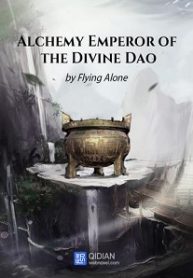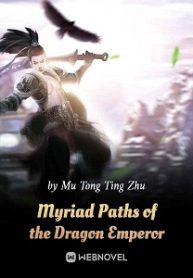Starting from the Planetary Governor - Chapter 146
- Home
- Starting from the Planetary Governor
- Chapter 146 - Chapter 146 Chapter 131 The Battle of Three Ponds 2
Chapter 146: Chapter 131, The Battle of Three Ponds_2
After these few mountain guns failed to make an impact, the only means they had left to threaten the armored personnel carriers were direct-fire rocket launchers.
But these things, beyond two hundred meters, were hard to aim accurately, and even when they hit, the power wasn’t sufficient. To ensure both accuracy and enough power to threaten the ‘Wanderer’s’ side armor, one would have to get within a few dozen meters, and it would be best if two or three groups attacked at once.
How difficult was this condition?
Quite a few brave warriors tried to carry their rocket launchers closer, but in this open field with little cover, there was no chance to approach. The crew inside the Wanderer was equipped with a considerably sophisticated battlefield reconnaissance system, which could detect most threats through observation ports. Then came a round of machine-gun fire or explosive shells, promptly blowing those brave ones daring to advance to pieces, along with the tubes in their hands.
Even if there were blind spots in the armored personnel carriers’ observation that allowed one or two rocket launcher teams to emerge, it was not a big deal.
The soldiers who dismounted to fight on foot were for just this task.
T5 level soldiers, no matter which military skill, all had sufficiently solid proficiency.
You have a launcher, I have one too, plus more; the gun in my hand is more accurate than yours, with longer range and fiercer firepower.
A few controlled shots or a pre-emptive rocket launch, and those raider fire teams that had managed to get close were wiped out.
When the brave warriors daring to counterattack had mostly died, those left with less courage finally couldn’t hold out any longer, and in complete collapse, they scattered. Then, like lambs awaiting slaughter in the wilderness, they were eliminated by soldiers wielding all sorts of weapons while fleeing.
Actually, even if they all fought to the death, what could that have accomplished?
Caught in a surprise attack by mechanized forces, without any position, without cover, lacking heavy weapons, out in the open field, they were just sitting ducks.
Of course, there were many of them, and in the completely disordered rout, quite a few managed to escape.
But without any transport, without supplies, it was uncertain how many of the raiders who fled would survive, how many could regroup and return.
…
If the two mechanized infantry platoons responsible for the encirclement fought an exceedingly beautiful ambush and claimed a great victory, then the two motorized infantry platoons rushing towards Sanchi Town along the roads had suffered a small loss, a sort of draw.
These two platoons were a bit lacking in heavy weapons and heavy vehicles.
The motorized infantry platoon only had the Iron Ox transport trucks and Scout Rider Motorcycles.
But the enemy they faced came prepared.
The battle reports indicated that the raiders had clearly expected Perbov to lead his troops here. Along the way, they planted mines and bombs; they constructed roadblocks and positions along the roads; they set ambushes on both sides of the roads, ready to emerge and strike when the troops passed by.
All these preparations had been effective.
However, what they absolutely did not foresee was that the soldiers coming to fight would be of such elite caliber.
During the advancement, a platoon led by Scout Rider Motorcycles detected the enemy troops blocking the road ahead of time and relayed the information back; the platoon’s scout squad also spotted the ambushes on both sides and immediately deployed from the trucks to meet the threat on both flanks.
Bombs and mines along the road destroyed two trucks, but they did not cause further casualties, as the platoon’s engineers began mine-clearing operations and constructed positions using the vehicles.
These responses and reactions left the raiders, who were supposed to be the ambushers, somewhat dazed.
This is not right!
It wasn’t the first time they had used similar tactics. The caravans they had ambushed before, even if protected by relatively strong mercenaries, would be disoriented after such an attack, and a complete route was very possible.
Even if they didn’t scatter, it was already good if they could barely organize a defensive line relying on their baggage train, let alone have the spare capacity to counterattack the ambushers?
And this counterattack was especially fierce!
A single infantry squad dared to face over a hundred enemies. Their tactical movements were standard and effective, crouching low, using the slight undulations of the terrain to conceal themselves; during fire exchange, their marksmanship was precise and surprisingly powerful. In contrast, sending an indiscriminate burst of gunfire from their side, whether they hit their mark or not was unknown, but certainly no one on the opposite side was falling; on the other hand, a few three-shot bursts from the enemy and people on their side were getting killed.
One infantry squad managed to hold back the attackers on one side, which was rather exaggerated.
But what could be done? Surely over a hundred men on their side couldn’t truly be chased away by a mere dozen from the other side?
After a brief regroup, they began a forceful assault. They intensified the firepower directly in front, while others were sent to infiltrate from the flanks.
Who doesn’t know how to infiltrate?
The result was, the team responsible for infiltration ran right into another infantry squad.
Next, the limited heavy firepower from the platoon and company came into play.
At the convoy, hastily constructed mortar positions began to assert themselves; rocket launchers from the squads were drawn, loaded with high-explosive ammunition, and as the raiders launched their attack, a single shot would explode and kill several.














